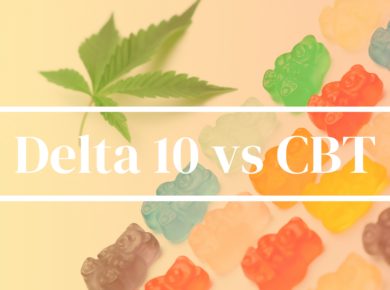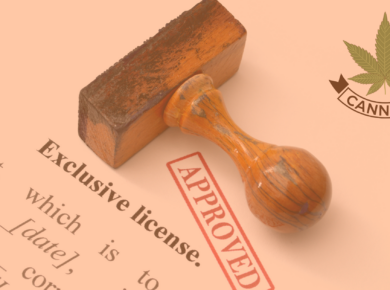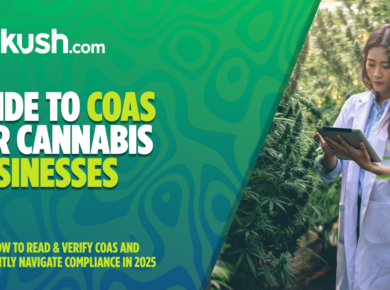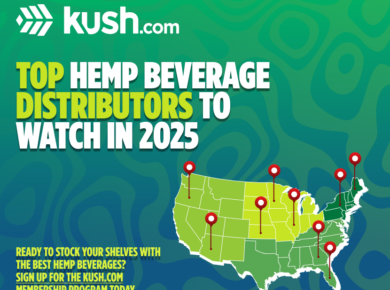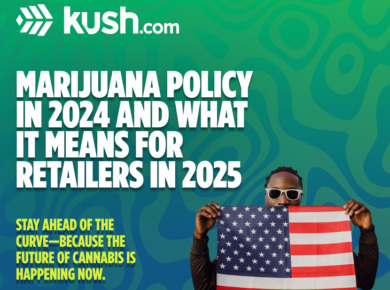What is CBD?
Cannabidiol, or CBD, has exploded in popularity in the past few years. CBD is the component in hemp and cannabis that has been found to have medicinal properties. Despite its medical properties, CBD continues to be listed as a federally restricted substance by the US government. It is non-psychoactive, which means that it does not produce the same “high” as tetrahydrocannabinol, or THC, the psychoactive component found in cannabis. CBD is produced from either hemp and cannabis. CBD produced from hemp has the added benefit that it is technically legal under the federal definition. Recently, the 2018 Farm Bill was signed into law, which legalized the production of hemp, under heavily regulated guidelines.

Want tips on how to include CBD into your diet? Click here >>
Is CBD Legal?
With ten states that have already legalized cannabis, CBD products are hardly a novelty. With the new legalization, CBD products are no longer just sold in dispensaries. They’ve been popping in corner convenience stores, drug stores, and grocery stores, sold right alongside sodas and candy. Increasingly, there has also been a boom in CBD-infused food products. Everything from lattes and smoothies to gummy candies and more.

Where is CBD Banned?
Not every state, however, wants to see CBD products available on the mainstream market. At least four states and various jurisdictions are banning CBD. Specifically CBD in food products, or CBD edibles are being banned in: New York, Maine, North Carolina, and Ohio.
New York
In New York City, authorities immediately began a crackdown on adding CBD to food products. They even went so far as to confiscate CBD-infused products from a local eatery, Fat Cat Kitchen. The New York Department of Health released a statement aimed at restaurants and food retailers:
“Restaurants in New York City are not permitted to add anything to food or drink that is not approved as safe to eat. The Health Department takes seriously its responsibility to protect New Yorkers’ health. Until cannabidiol (CBD) is deemed safe as a food additive, the Department is ordering restaurants not to offer products containing CBD.”
New York Department of Health
Maine
Maine, a state where cannabis has been legal for more than two years, is easily the most surprising of the states to outlaw CBD edibles. The Maine Department of Health and Human Services came to a similar conclusion as New York authorities, calling into question the safety of CBD as an additive to food products. Although this does not affect the state’s medical and recreational cannabis products, it certainly affects the state’s widespread industrial hemp industry, which stood to gain a hefty profit from the newly legal CBD market.
North Carolina
North Carolina’s assistant commissioner for the Consumer Protection with the Department of Agriculture and Consumer Services, Joe Reardon, sent out letters to businesses carrying CBD food products warning them about potential violations of state and federal law. This is a blow to the state’s industrial hemp industry, which has nearly 500 licensed hemp farmers under the Industrial Hemp Pilot Program. Hemp has become known as a cash crop, particularly in Western North Carolina, and some of the largest hemp producers for the Southeast United States are located in North Carolina.

Ohio
Ohio operates a very strict medical CBD oil program and since the Farm Bill was passed, the Ohio State Board of Pharmacy issued clear guidance for those seeking to use CBD oils or products: purchase CBD products only from state-licensed dispensaries. This guidance makes sense for a medical consumer seeking a medical product – Ohio’s program has strict regulations to ensure that all CBD products are safe for consumption, whether in edibles or in oils. Ohio’s dispensaries only just opened for business in January of 2019, but anyone looking for CBD-infused products must have a valid state-issued Ohio medical marijuana ID card in order to visit a dispensary.
What does the future hold for cannabidiol?
It would appear that CBD is here to stay, but whether or not it will continue to be available on the mainstream market may require some tighter regulations from the government to ensure safety.
If you’re looking for a reputable CBD Vendor check out the direct listing below!

